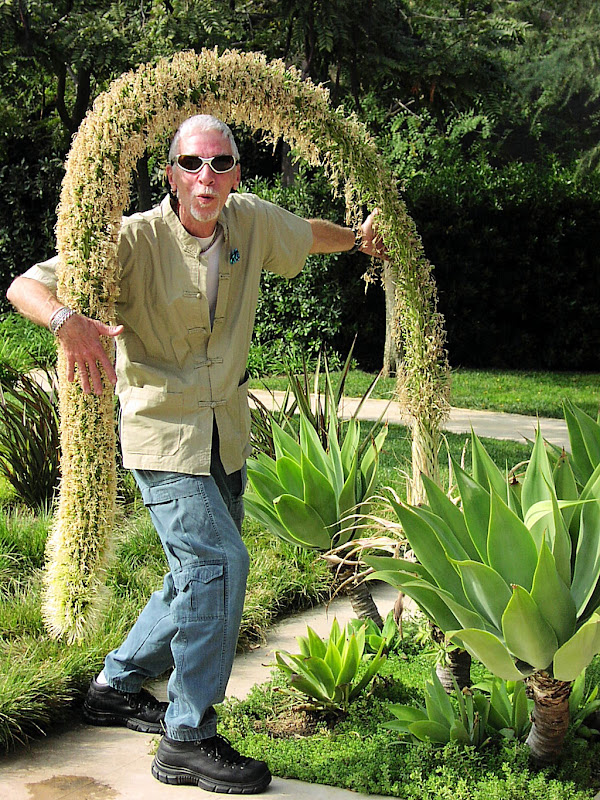A word about nurseries
Coming from the perspective of a landscape designer who has been in the business for a few years who has worked in commercial, educational and retail nurseries as well as being on the purchasing end.
I patronize both retail, wholesale and semi-wholesale nurseries.
Each has their strengths and weaknesses.
I receive copious advertisements from my favorite garden nursery retailers.
I appreciate their cheerful colorful and very descriptive marketing blurbs.
These ads come in the form of email announcements, snail mail post cards/ newsletters and if I have linked to them via a social media site I also receive their advertisements on Facebook.
It’s nice to know when they are having a sale or just received a new shipment of whatever.
This marketing info comes to me on a weekly or monthly basis.
This marketing blast is reaching out to my 'retail buying' self. Not my wholesale buying self.
On an annual , quarterly and in some cases on a monthly basis I receive marketing information from my wholesale nurseries and or my plant brokers.
Their marketing material is usually in the form of their current availability list .
Most of the time there are few if any lovely photographs but plenty of hard core horticultural info.
Bottom line, a retail nursery markets different than a wholesale nursery because they have completely different customers.
For those who are not familiar with doing business with a large scale professional wholesale nursery the experience is quite different from retail shopping.
Photos : Strictly wholesale Nursery SweetLane Nursery in Santa Rosa CA :
First of all you have to be qualified to purchase from a wholesaler. This means having a resale license, a C-27 license , your landscape architectural license or have an established design and or design and build firm.
Bottom line, most wholesale nurseries do not want unqualified unlicensed gardeners in their nursery.
Most times you drive your truck down the lanes to pull your plants. Some smaller wholesale nurseries will have automatic electric carts for you to drive and a few of the smaller nurseries have nursery carts.
Usually I drive my truck or take the electric cart along with a clip board to list the plants that I want loaded and delivered to the job site.
Only occasionally do I Ioad my truck with plants. My Toyota pick up can hold only 80 one gallon plants and that is a pretty small amount of plants to buy when doing a garden installation.
Photo: Sweetlane Wholesale - rows upon rows of mugo pines.
Then there are the retail / semi- wholesale nurseries. These are usually small to moderately sized growers that have a retail store and a separate window for semi-wholesale customers. These nurseries offer a volume discount to those who are regular customers who may or may not have their licenses. They generally offer 25 to 50 percent off the retail price.
That can be a great deal of savings, especially to those who do not have the ability to purchase directly from a wholesaler.
This type of nursery often uses the same type of retail advertising that a retail nursery uses because they are sharing and targeting to the same type of patron.
A wholesale nursery does not want a retail customer to come to their wholesale nursery.
They sell their plants to an Independent Garden Center ( IGC) and often the marketing of the plants is left up to the IGC.
The IGC and the Wholesale nursery have to walk a fine line because often times the IGC does not want the public to know who they are buying their plants from and or the Wholesale nursery does not want to get calls from Jane Gardener looking for one or two plants.
That is why a wholesale nursery and a retail nursery market their wares differently.
They have different markets.
This leaves the wholesale marketing up to the retail nursery. In some cases some wholesale nurseries are ‘branding’ themselves, such as Monrovia and Proven Winners.
This is a smart idea but once again, they are walking a fine line because they do not want to have Jane and Joe Home Gardener calling their wholesale facilities looking for one or two plants but they want Joe and Jane to buy their brand plant from the retailer.
This puts advertising and marketing for the wholesale nursery in a unique spot.
They need to get their brand name out there but they have to rely on the retail nursery
to do the actual selling of their product.
It’s not as simple as selling Coca Cola or Colgate toothpaste. Each company makes their own specific brand.
But with nursery stock, if a plant is no longer under patent registration, anyone can sell an agapanthus or agave and to most consumers it doesn’t matter what ‘brand’ or company is hosting that plant, the only thing that matters is the low price.
Comparing a retail nursery business to a wholesale nursery business is like comparing apples to elephants.






























